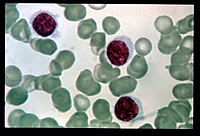
Association Between Maternal Caffeine Consumption and Metabolism and Neonatal Anthropometry
Sign Up to like & getrecommendations! Published in 2021 at "JAMA Network Open"
DOI: 10.1001/jamanetworkopen.2021.3238
Abstract: Key Points Question Is maternal caffeine intake associated with neonatal anthropometry? Findings In this cohort study of 2055 women from 12 clinical sites, measures of caffeine consumption (plasma caffeine and paraxanthine and self-reported consumption) were… read more here.
Keywords: caffeine; caffeine consumption; consumption; maternal caffeine ... See more keywords

Association Between Early Caffeine Citrate Administration and Risk of Acute Kidney Injury in Preterm Neonates: Results From the AWAKEN Study
Sign Up to like & getrecommendations! Published in 2018 at "JAMA Pediatrics"
DOI: 10.1001/jamapediatrics.2018.0322
Abstract: Importance Acute kidney injury (AKI) occurs commonly in preterm neonates and is associated with increased morbidity and mortality. Objectives To examine the association between caffeine citrate administration and AKI in preterm neonates in the first… read more here.
Keywords: administration; kidney injury; caffeine; acute kidney ... See more keywords

Caffeine for apnea of prematurity and brain development at 11 years of age
Sign Up to like & getrecommendations! Published in 2018 at "Annals of Clinical and Translational Neurology"
DOI: 10.1002/acn3.628
Abstract: Caffeine therapy for apnea of prematurity has been reported to improve brain white matter microstructure at term‐equivalent age, but its long‐term effects are unknown. This study aimed to investigate whether caffeine affects (1) brain structure… read more here.
Keywords: apnea prematurity; age; years age; caffeine ... See more keywords

Could aspartame exacerbate caffeine effects on renal maturation in rat's offspring? A biochemical and histological study
Sign Up to like & getrecommendations! Published in 2020 at "Birth Defects Research"
DOI: 10.1002/bdr2.1836
Abstract: Caffeine and aspartame (ASP) are mostly used as a diet regimen to reduce overweight. The risk increase if used during critical life periods that may affect the development of fetal organs. read more here.
Keywords: caffeine; effects renal; exacerbate caffeine; could aspartame ... See more keywords

Biocatalytic production of 7‐methylxanthine by a caffeine‐degrading Escherichia coli strain
Sign Up to like & getrecommendations! Published in 2022 at "Biotechnology and Bioengineering"
DOI: 10.1002/bit.28212
Abstract: 7‐Methylxanthine, a derivative of caffeine (1,3,7‐trimethylxanthine), is a high‐value compound that has multiple medical applications, particularly with respect to eye health. Here, we demonstrate the biocatalytic production of 7‐methylxanthine from caffeine using Escherichia coli strain… read more here.
Keywords: paraxanthine; caffeine; methylxanthine caffeine; methylxanthine ... See more keywords

Design, synthesis, and structure–activity relationship of caffeine‐based triazoles as dual AChE and BACE‐1 inhibitors
Sign Up to like & getrecommendations! Published in 2022 at "Drug Development Research"
DOI: 10.1002/ddr.21998
Abstract: Natural products have significantly contributed to drug discovery for neurodegenerative diseases. Caffeine is one of the well‐known central nervous system(CNS)‐active natural products. Besides its CNS stimulant properties, it is a mild inhibitor of acetylcholinesterase (AChE)… read more here.
Keywords: bace; caffeine based; caffeine; ache ... See more keywords

Chemoimmunotherapy with doxorubicin and caffeine combination enhanced ICD induction and T‐cell infiltration in B16F10 melanoma tumors
Sign Up to like & getrecommendations! Published in 2023 at "Journal of Biochemical and Molecular Toxicology"
DOI: 10.1002/jbt.23327
Abstract: Majority of chemotherapeutic agents can elicit antitumor immunity and modulate the composition, density, function, and distribution of tumor infiltrating lymphocytes (TILs), to influence differential therapeutic responses and prognosis in cancer patients. The clinical success of… read more here.
Keywords: icd induction; cell; cell infiltration; combination ... See more keywords

Chronic caffeine consumption improves the acute sleep deprivation‐induced spatial memory impairment while altering N‐methyl‐D‐aspartate receptor subunit expression in male rats
Sign Up to like & getrecommendations! Published in 2022 at "International Journal of Developmental Neuroscience"
DOI: 10.1002/jdn.10212
Abstract: Caffeine is a psychostimulant substance that is mostly used to prevent fatigue, increase alertness, and ameliorate sleep loss situations. In this study, we aimed to investigate the effect of chronic caffeine consumption on learning and… read more here.
Keywords: chronic caffeine; caffeine; spatial memory; memory ... See more keywords

Astilbin lowers the effective caffeine dose for decreasing lipid accumulation via activating AMPK in high-fat diet-induced obese mice.
Sign Up to like & getrecommendations! Published in 2020 at "Journal of the science of food and agriculture"
DOI: 10.1002/jsfa.10669
Abstract: BACKGROUND Caffeine has an anti-obesity effect, but chronic excessive caffeine consumption also causes caffeinism, which is marked by increased anxiety or depression among other symptoms. The goal of this study was to investigate whether the… read more here.
Keywords: caffeine; accumulation via; high fat; caffeine dose ... See more keywords

Blood–brain barrier permeability in response to caffeine challenge
Sign Up to like & getrecommendations! Published in 2022 at "Magnetic Resonance in Medicine"
DOI: 10.1002/mrm.29355
Abstract: Caffeine is known to alter brain perfusion by acting as an adenosine antagonist, but its effect on blood–brain barrier (BBB) permeability is not fully elucidated. This study aimed to dynamically monitor BBB permeability to water… read more here.
Keywords: blood brain; brain barrier; brain; caffeine ... See more keywords

Caffeine facilitates extinction of auditory fear conditioning in rats
Sign Up to like & getrecommendations! Published in 2022 at "Neuropsychopharmacology Reports"
DOI: 10.1002/npr2.12287
Abstract: Caffeine is the most widely consumed psychostimulant drug which could affect learning and memory acting through central adenosine receptors. Although caffeine has been suggested to impair the acquisition and the expression of auditory fear conditioning,… read more here.
Keywords: auditory fear; caffeine; conditioning rats; caffeine facilitates ... See more keywords